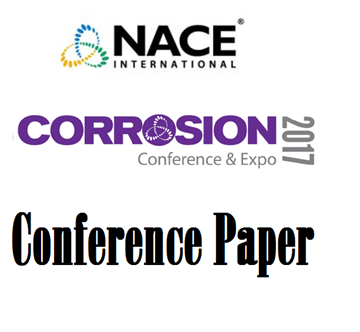Search
Polythionic Acid Stress Corrosion Cracking Of UNS S34751 Containing Higher Cu For Improvement Of Creep Strength
Also Purchased
Effect of Carbon Content on Polythionic Acid Stress Corrosion Cracking Resistance for UNS S34751 with Extra Low Carbon Content
Product Number:
51319-12783-SG
Publication Date:
2019
$20.00
98592 EFFECTS OF SENSITIZATION AND SERVICE FLUID CHEMISTRY ON POLYTHIONIC ACID STRESS CORROSION CRACKING OF 18-8 STAINLESS STEELS
Product Number:
51300-98592-SG
$0.00
Effects of Alloying Elements for Resistance to Naphthenic Acid Corrosion of 18Cr Austenitic Stainless Steels
Product Number:
51317--9057-SG
ISBN:
9057 2017 CP
Publication Date:
2017
$20.00




